Showing 1–12 of 40 resultsSorted by latest
-
Sale!
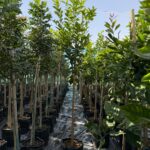
Lemon ‘Limoneira’ 50lt
Original price was: R1,350.00.R975.00Current price is: R975.00.Add to cartLemon ‘Limoneira’ 50lt
Full Sun
Medium Watering
Fruiting Tree
EvergreenLemon ‘Limoneira’ is a high-yielding variety of lemon, known for its large, bright yellow fruit, smooth rind, and high juice content.
🌿 Lemon ‘Limoneira’
Botanical Name: Citrus limon ‘Limoneira’
Type: Evergreen fruit treeDescription
A vigorous and productive lemon tree variety originally from the Limoneira Ranch in California. The fruit is similar in appearance and flavor to the Lisbon lemon — juicy, tart, and ideal for culinary use, juicing, and preserving.Features
Large, smooth-skinned lemons
High juice yield
Thornless or nearly thornless branches
Fast-growing and productiveGrowing Tips
🌞 Sun: Full sun
🌱 Soil: Well-drained, fertile soil
💧 Water: Regular watering, especially in dry months
❄️ Cold Tolerance: Moderate (protect from heavy frost)
🍋 Harvest: Year-round in warm climates; peak in winter to early springIdeal For
Home gardens, orchards, large pots, or as a feature plant in sunny spots.Lemon ‘Limoneira’ is a high-yielding variety of lemon, known for its large, bright yellow fruit, smooth rind, and high juice content.
🌿 Lemon ‘Limoneira’
Botanical Name: Citrus limon ‘Limoneira’
Type: Evergreen fruit treeDescription
A vigorous and productive lemon tree variety originally from the Limoneira Ranch in California. The fruit is similar in appearance and flavor to the Lisbon lemon — juicy, tart, and ideal for culinary use, juicing, and preserving.Features
Large, smooth-skinned lemons
High juice yield
Thornless or nearly thornless branches
Fast-growing and productiveGrowing Tips
🌞 Sun: Full sun
🌱 Soil: Well-drained, fertile soil
💧 Water: Regular watering, especially in dry months
❄️ Cold Tolerance: Moderate (protect from heavy frost)
🍋 Harvest: Year-round in warm climates; peak in winter to early springIdeal For
Home gardens, orchards, large pots, or as a feature plant in sunny spots. -
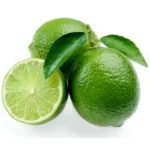
Tahiti Lime Tree 60lt
R2,750.00Add to cartTahiti Lime Tree 60lt
Approx 1.3m Tall
🌿 Tahiti Bearss Lime (also known as Persian Lime)
Botanical Name: Citrus × latifolia
Type: Evergreen fruiting lime treeDescription
The Tahiti Bearss Lime is a popular, nearly thornless, seedless lime variety producing medium to large, juicy limes with smooth green skin that turns yellow when fully ripe. It’s a vigorous, upright grower and a heavy producer of fruit, especially in warm climates.Key Features
Seedless, juicy limes with mild, aromatic flavor
Less acidic than key limes – great for cocktails, cooking, and preserves
Nearly thornless – easy to harvest
Fast-growing and productive
Bears fruit multiple times a yearGrowing Conditions
🌞 Sun: Full sun
🌱 Soil: Well-drained, fertile soil
💧 Watering: Keep soil consistently moist but not soggy
❄️ Cold Tolerance: Sensitive to frost – protect during cold snaps
📏 Height: 3–4m (can be kept smaller with pruning)Fruit Season
Primarily late summer to early winter, but can fruit nearly year-round in ideal conditions.Ideal For
Home gardens, patios, containers, and culinary use. -
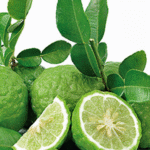
-
Sale!
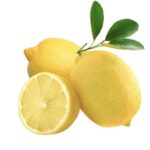
Eureka Lemon Tree 125lt Special
Original price was: R4,150.00.R2,950.00Current price is: R2,950.00.Add to cartEureka Lemon Tree 125lt Special
Approx 1.8m Tall
🍋 Eureka Lemon Tree
Botanical Name: Citrus limon ‘Eureka’
Type: Evergreen citrus fruit treeDescription
The Eureka Lemon is one of the most popular lemon varieties for home gardens and commercial growing. It produces bright yellow, medium- to large-sized lemons with a smooth rind, very few seeds, and a high juice content. It’s a prolific bearer and can produce fruit nearly all year round in mild climates.Key Features
Classic lemon flavour – tart, aromatic, and juicy
Virtually seedless fruit
Bears fruit year-round with peak in winter
Compact growth habit – ideal for pots or small gardens
Minimal thorns compared to other lemon typesGrowing Conditions
🌞 Sun: Full sun
🌱 Soil: Well-drained, fertile soil
💧 Watering: Moderate – allow top layer of soil to dry between waterings
❄️ Cold Tolerance: Sensitive to heavy frost – protect in winter
📏 Height: 3–4m tall (prune to shape)Uses
Perfect for fresh use, juicing, cooking, desserts, and preserving.Great For
Home gardens, patios, urban spaces, and indoor/outdoor container growing. -
Sale!

Eureka Lemon Tree 60lt
Original price was: R2,750.00.R2,350.00Current price is: R2,350.00.Add to cartEureka Lemon Tree 60lt
Approx 1.3m Tall
🍋 Eureka Lemon Tree
Botanical Name: Citrus limon ‘Eureka’
Type: Evergreen citrus fruit treeDescription
The Eureka Lemon is one of the most popular lemon varieties for home gardens and commercial growing. It produces bright yellow, medium- to large-sized lemons with a smooth rind, very few seeds, and a high juice content. It’s a prolific bearer and can produce fruit nearly all year round in mild climates.Key Features
Classic lemon flavour – tart, aromatic, and juicy
Virtually seedless fruit
Bears fruit year-round with peak in winter
Compact growth habit – ideal for pots or small gardens
Minimal thorns compared to other lemon typesGrowing Conditions
🌞 Sun: Full sun
🌱 Soil: Well-drained, fertile soil
💧 Watering: Moderate – allow top layer of soil to dry between waterings
❄️ Cold Tolerance: Sensitive to heavy frost – protect in winter
📏 Height: 3–4m tall (prune to shape)Uses
Perfect for fresh use, juicing, cooking, desserts, and preserving.Great For
Home gardens, patios, urban spaces, and indoor/outdoor container growing. -
Sale!
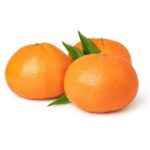
Naartjie Clementine Tree 60lt
Original price was: R2,750.00.R2,395.00Current price is: R2,395.00.Add to cartNaartjie Clementine Tree 60lt
Approx 1.0m Tall
-
Sale!
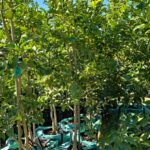
Lisbon Lemon Tree 250lt
Original price was: R7,995.00.R5,890.00Current price is: R5,890.00.Add to cartLisbon Lemon Tree 250lt
Full Sun
Afternoon Sun
Moderate WateringThe Lisbon lemon tree is a smooth skin lemon and has a thick leaf. It usually bears fruit on the inside of the tree and helps protect the fruit from different weather conditions.
They like well drained soil and full sunlight to semi shade
-
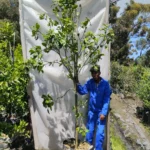
-
Sale!

Lisbon Lemon Tree 50lt
Original price was: R1,250.00.R995.00Current price is: R995.00.Add to cartLisbon Lemon Tree 50lt
The Lisbon lemon tree is a smooth skin lemon and has a thick leaf. It usually bears fruit on the inside of the tree and helps protect the fruit from different weather conditions.
They like well drained soil and full sunlight to semi shade
-
Sale!

Eureka Lemon Tree 50lt
Original price was: R1,250.00.R895.00Current price is: R895.00.Add to cartEureka Lemon Tree 50lt
Full Sun
Medium Watering
Fruiting Tree
Evergreen🍋 Eureka Lemon Tree
Botanical Name: Citrus limon ‘Eureka’
Type: Evergreen citrus fruit treeDescription
The Eureka Lemon is one of the most popular lemon varieties for home gardens and commercial growing. It produces bright yellow, medium- to large-sized lemons with a smooth rind, very few seeds, and a high juice content. It’s a prolific bearer and can produce fruit nearly all year round in mild climates.Key Features
Classic lemon flavour – tart, aromatic, and juicy
Virtually seedless fruit
Bears fruit year-round with peak in winter
Compact growth habit – ideal for pots or small gardens
Minimal thorns compared to other lemon typesGrowing Conditions
🌞 Sun: Full sun
🌱 Soil: Well-drained, fertile soil
💧 Watering: Moderate – allow top layer of soil to dry between waterings
❄️ Cold Tolerance: Sensitive to heavy frost – protect in winter
📏 Height: 3–4m tall (prune to shape)Uses
Perfect for fresh use, juicing, cooking, desserts, and preserving.Great For
Home gardens, patios, urban spaces, and indoor/outdoor container growing. -
Sale!

Cara Cara Navel Tree 40lt
Original price was: R1,200.00.R895.00Current price is: R895.00.Add to cartCara Cara Navel Tree 40lt
Common Name: Blood OrangeFull Sun
Wind Tolerant
Medium Watering
Evergreen
Fruiting Tree -
Sale!

Cara Cara Navel Tree 20lt
Original price was: R700.00.R495.00Current price is: R495.00.Add to cartCara Cara Navel Tree 20lt
Common Name: Blood OrangeFull Sun
Wind Tolerant
Medium Watering
Evergreen
Fruiting Tree
